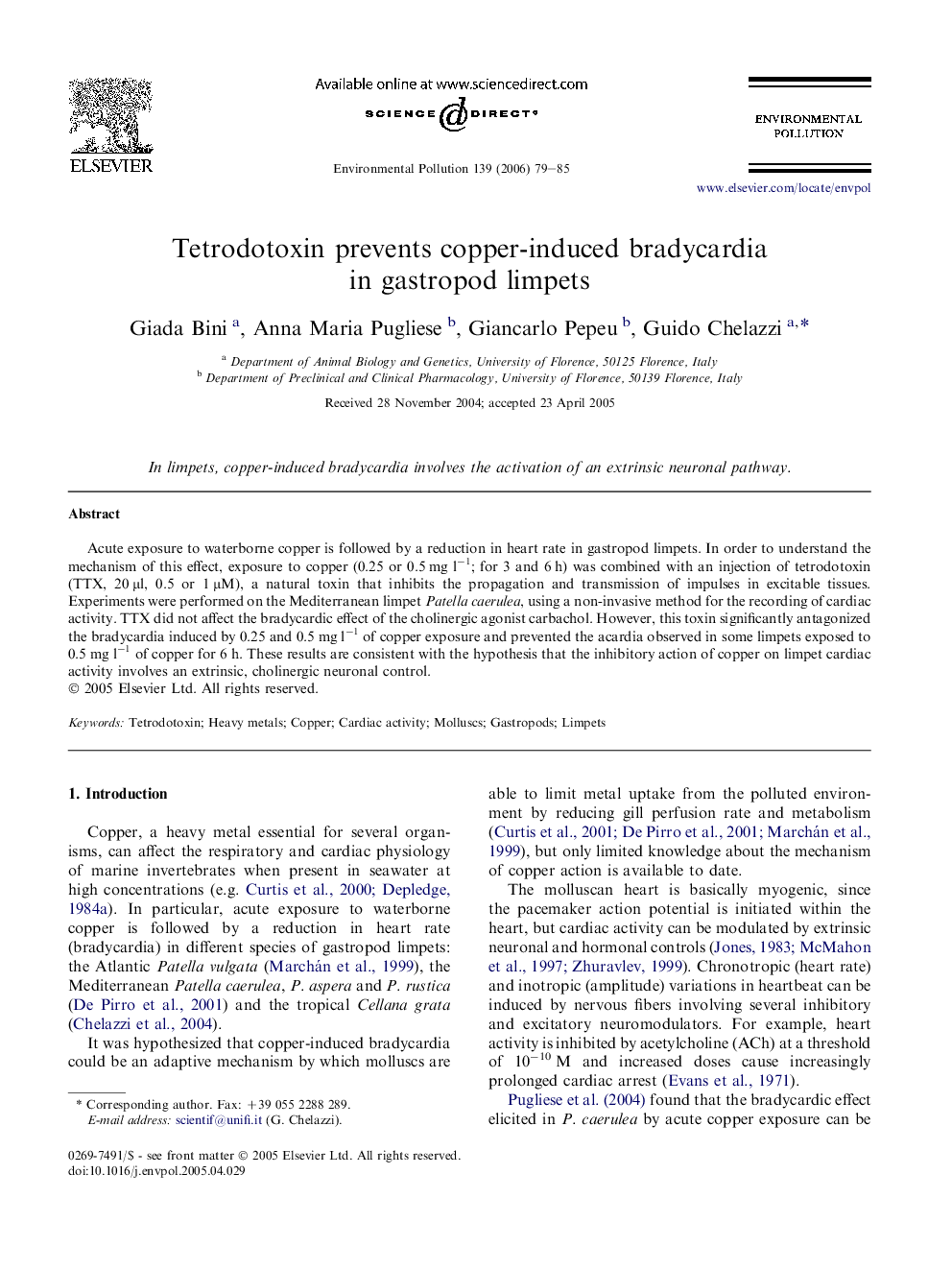| Article ID | Journal | Published Year | Pages | File Type |
|---|---|---|---|---|
| 4428107 | Environmental Pollution | 2006 | 7 Pages |
Acute exposure to waterborne copper is followed by a reduction in heart rate in gastropod limpets. In order to understand the mechanism of this effect, exposure to copper (0.25 or 0.5 mg l−1; for 3 and 6 h) was combined with an injection of tetrodotoxin (TTX, 20 μl, 0.5 or 1 μM), a natural toxin that inhibits the propagation and transmission of impulses in excitable tissues. Experiments were performed on the Mediterranean limpet Patella caerulea, using a non-invasive method for the recording of cardiac activity. TTX did not affect the bradycardic effect of the cholinergic agonist carbachol. However, this toxin significantly antagonized the bradycardia induced by 0.25 and 0.5 mg l−1 of copper exposure and prevented the acardia observed in some limpets exposed to 0.5 mg l−1 of copper for 6 h. These results are consistent with the hypothesis that the inhibitory action of copper on limpet cardiac activity involves an extrinsic, cholinergic neuronal control.
